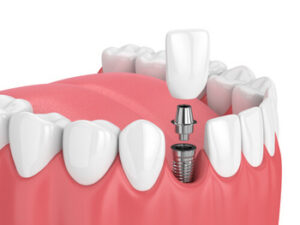Amid the increasing interest in international dental implants, Bangkok has attracted dental tourists looking to regain their confidence without breaking the bank. However, beneath the allure lies a myriad of risks and complications that patients must carefully consider. In this comprehensive guide, we delve into the dangers associated with dental implants in Bangkok, shed light on the critical elements to consider when choosing a dental implant dentist and advocate for Australia as a safer alternative. From dental implant failure to infections and nerve damage, we uncover the potential pitfalls of seeking treatment abroad and provide insights into accessing quality dental implant treatments in Australia.
The Risks Of Dental Tourism In Bangkok: Understanding The Allure
Dental tourism in Bangkok has gained popularity due to its allure of affordable prices and the opportunity for a vacation in a vibrant city. Many individuals are drawn to combining dental procedures with leisure activities, making it seem attractive for those seeking dental treatments abroad. However, some risks are present underneath that you should keep in mind.
Lack Of Regulation
One of the primary risks associated with dental tourism in Bangkok is the lack of regulatory oversight compared to countries like Australia. While some dental clinics offer competitive prices, they may not adhere to the same strict standards and regulations enforced in countries with established healthcare systems.
Quality Variability
The quality of dental care in Bangkok can vary significantly across different clinics. While some may provide excellent service and adhere to international standards, others may cut corners to reduce costs, compromising patient safety and treatment outcomes. Without thorough research and due diligence, patients risk receiving substandard care.
Communication Challenges
Another challenge patients may encounter during dental tourism in Bangkok is communication barriers. Language differences and cultural nuances can lead to misunderstandings between patients and dental professionals, affecting treatment planning, informed consent, and post-operative care. Effective communication ensures a positive patient experience and optimal treatment results.
Limited Legal Recourse
If complications or disputes arise from dental treatment in Bangkok, patients may face challenges in seeking legal recourse or obtaining compensation. Differences in legal systems and limited oversight may leave patients with limited options for addressing grievances, emphasising the importance of thorough research and risk assessment before undergoing treatment abroad.
Health And Safety Concerns

While dental tourism in Bangkok may promise affordable dental treatments and a memorable travel experience, patients must weigh the risks carefully before deciding. The allure of lower costs must be balanced against potential compromises in quality, safety, and legal protections. Opting for dental implant treatments in Australia provides patients peace of mind, quality care, and reliable outcomes, ensuring a positive experience and long-term oral health benefits.
Complications Of Dental Implant Treatment In Bangkok
When seeking dental implant treatment in Bangkok, patients must be aware of the potential complications that can arise during and after the procedure. Despite the allure of lower costs and the promise of a holiday, these complications can seriously affect oral health and overall well-being. This section explores common complications encountered during dental implant treatment in Bangkok, including dental implant failure, infections, nerve damage, and other adverse outcomes.
Dental Implant Failure
Dental implant failure can occur due to various factors, including inadequate bone integration, implant misplacement, or biomechanical issues. In Bangkok, where standards of care may vary, the risk of implant failure may be heightened if proper protocols for assessment, planning, and placement are not followed diligently. Patients must be prepared for the possibility of implant failure and understand the implications it may have on their treatment outcomes and oral health.
Dental Implant Infections
Infections can pose a significant risk during and after dental implant treatment in Bangkok, particularly if proper sterilisation protocols are not strictly followed. Contaminated instruments, unsterile environments, or compromised infection control measures can increase the likelihood of post-operative infections. Patients must be vigilant about signs of infection, such as swelling, pain, or discharge, and seek prompt medical attention if symptoms arise.
Nerve Damage
Nerve damage is another potential complication associated with dental implant treatment in Bangkok. Improper surgical technique, inadequate assessment of nerve proximity, or excessive force during implant placement can result in nerve injury, leading to sensory disturbances, numbness, or pain in the surrounding tissues. Patients should discuss the risk of nerve damage with their dental implant dentist and ensure proper evaluation and precautions are taken to minimise this risk.
While dental implant treatment in Bangkok may offer cost savings and convenience, patients must be prepared to navigate potential complications that can arise during the process. Opting for dental implant treatment in a regulated and reputable environment like Australia can provide patients with greater confidence, safety, and peace of mind throughout their treatment journey.
Why Australia Is A Superior Destination For Dental Implant Treatment
Regarding dental implant treatment, Australia is a far superior destination to Bangkok, offering patients a safer and more reliable option. In this section, we explore why Australia is the preferred choice for dental implant procedures, emphasising safety, quality, and peace of mind for patients seeking optimal oral health outcomes.
Regulatory Standards And Oversight
Australia boasts stringent regulatory standards and oversight in healthcare, ensuring that dental practices adhere to strict guidelines for patient safety and quality of care. Australian dental clinics are subject to rigorous licencing requirements, regular inspections, and adherence to professional standards set by governing bodies. Patients can have confidence in the reliability and accountability of Australian dental practices, which prioritise patient well-being above all else.
Highly Trained Professionals
Dental professionals in Australia undergo extensive education, training, and expertise in implant dentistry, equipping them with the knowledge and skills necessary to deliver exceptional care. Dentists in Australia also undergo rigorous training programmes and continuing education to stay abreast of the latest implant technology and techniques. Patients benefit from the expertise of highly trained professionals who prioritise precision, safety, and patient satisfaction in every aspect of treatment.
State-Of-The-Art Facilities And Technology
Australian dental clinics have state-of-the-art facilities and advanced technology to provide patients with the highest standard of care and treatment outcomes. From digital imaging and computer-guided implant placement to advanced sterilisation protocols and materials, Australian dental practices leverage cutting-edge technology to optimise treatment planning, execution, and post-operative care. Patients can expect a seamless and efficient treatment experience with access to the latest innovations in implant dentistry.
Stringent Infection Control Measures
Infection control is paramount in dental implant treatment to prevent post-operative complications and ensure patient safety. Australian dental clinics adhere to strict infection control protocols recommended by health authorities, including proper instrument sterilisation, use of disposable materials, and maintenance of sterile environments. By prioritising infection control measures, Australian dental practices mitigate the risk of infections and promote optimal healing and implant success rates.
Legal Protections And Recourse
Australian patients undergoing dental implant treatment benefit from robust legal protections and recourse in case of complications or disputes. Australian healthcare laws and regulations allow patients to seek redress, compensation, or resolution in malpractice or negligence cases. Additionally, patients can access consumer rights protections and avenues for lodging complaints or grievances through regulatory authorities. These legal safeguards offer patients peace of mind and confidence in their rights as healthcare consumers.
Choosing Australia as the destination for dental implant treatment offers patients numerous advantages over seeking treatment in Bangkok. Patients can trust Australian dental practices’ expertise, quality, and accountability, ensuring a positive treatment experience and long-term success with dental implant procedures.
Key Considerations When Choosing Your Dental Implant Dentist
Selecting the right dental implant dentist is crucial to the success and safety of your treatment. Several key elements should guide your decision-making process when seeking dental implant treatment. This section outlines essential factors to consider when choosing your dentist to ensure a positive treatment experience and optimal outcomes.
Credentials And Expertise

Reputation And Reviews
Researching the reputation of the dental implant dentist and their clinic can provide valuable insights into the quality of care they deliver. Read patient reviews and testimonials to gauge the experiences of others who have undergone dental implant treatment with the dentist. Positive reviews and high patient satisfaction ratings indicate a reputable and reliable dental practice.
Treatment Approach And Technology
Evaluate the treatment approach and technology the dental implant dentist uses to ensure they employ modern techniques and state-of-the-art equipment. Enquire about the types of dental implants offered and any advanced procedures or technologies utilised to enhance treatment outcomes. A dentist who stays abreast of the latest advancements in implant dentistry can offer patients more effective and efficient treatment options.
Communication And Patient Care
Effective communication and patient-centred care are essential to a positive dental implant treatment experience. Choose a dentist who listens to your concerns, answers your questions, and involves you in decision-making. Clear communication fosters trust and prioritises your needs and preferences throughout the treatment journey.
Comprehensive Treatment Planning
A reputable dental implant dentist will thoroughly assess your oral health and develop a personalised treatment plan tailored to your needs and goals. Ensure the dentist discusses all aspects of the treatment plan, including pre-operative preparations, implant placement, restoration options, and post-operative care. A comprehensive approach to treatment planning minimises the risk of complications and maximises the likelihood of successful outcomes.
Follow-Up Care And Maintenance
Successful dental implant treatment extends beyond the initial procedure, requiring ongoing follow-up care and maintenance to ensure long-term oral health and implant success. Enquire about the dentist’s approach to post-operative care, including scheduled follow-up appointments, complications monitoring, oral hygiene practices and implant maintenance recommendations. A dentist who prioritises comprehensive follow-up care demonstrates a commitment to patient well-being beyond the treatment’s completion.
Choosing the right dental implant dentist is critical in achieving successful outcomes and a positive treatment experience. By considering factors such as credentials, reputation, treatment approach, communication, comprehensive planning, and follow-up care, patients can make informed decisions and partner with a dental professional who prioritises their oral health and satisfaction.
Affording Dental Implant Treatments In Australia: Exploring Financial Options
The cost of dental implant treatment in Australia may seem daunting to some patients, but various financial options are available to make these life-changing procedures more accessible. In this section, we delve into the strategies and resources patients can explore to afford dental implant treatments in Australia, ensuring that quality oral health care is within reach for everyone.
Payment Plans And Financing Options
Many dental clinics in Australia offer flexible payment plans and financing options to help patients manage the cost of dental implant treatment. These plans allow patients to spread the cost of treatment over time through convenient monthly instalments, making it easier to budget for the expense without compromising on quality or delaying necessary dental care.
Dental Insurance Coverage
Depending on their insurance plan, patients with dental insurance coverage may be eligible for partial reimbursement or coverage of dental implant treatment costs. Patients must review their insurance policy carefully and understand the extent of coverage for implant procedures, including any waiting periods, exclusions, or limitations that may apply. Consulting with the insurance provider or dental clinic can clarify coverage options and reimbursement processes.
Government Assistance Programmes
Some government assistance programmes in Australia may provide financial support or subsidies for eligible individuals seeking dental implant treatment. Patients with specific healthcare needs or financial hardships may qualify for assistance.
Health Savings Accounts And Flexible Spending Arrangements
Health savings accounts (HSAs) and flexible spending arrangements (FSAs) are tax-advantaged accounts that allow individuals to set aside pre-tax funds for qualified medical expenses, including dental implant treatment. By contributing to these accounts regularly, patients can accumulate funds to cover the cost of implants while enjoying tax benefits and financial flexibility.
Patient Financing Programmes
Some dental implant clinics in Australia partner with third-party financing companies to offer patient financing programmes specifically tailored to dental procedures. These programmes may provide competitive interest rates, flexible repayment terms, and quick approval processes, enabling patients to proceed with treatment without delay and without incurring undue financial strain.
Negotiating Treatment Costs
Patients should not hesitate to enquire about potential discounts or negotiate treatment costs with their dental implant expert. Some clinics may offer promotional pricing, loyalty discounts, or special incentives for cash payments or multiple procedures. Exploring these options and advocating for oneself can help patients secure affordable dental implant treatment without compromising quality or safety.
Various financial options and resources make affordable dental implant treatments in Australia possible. Prioritising oral health and investing in quality dental care in Australia ensures long-term well-being and confidence in one’s smile.
What To Expect When Getting Dental Implants In Australia: The Steps To A Smile Makeover
Embarking on a dental implant journey in Australia involves a series of steps to restore missing teeth and transform smiles. In this section, we outline the comprehensive process of getting dental implants in Australia, from initial consultations to final restoration, guiding patients through each stage of their smile makeover with Australian dental implant treatments.
Initial Consultation And Assessment
The journey begins with an initial consultation with an Australian dental implant expert. During this appointment, the dentist conducts a comprehensive assessment of the patient’s oral health, including an evaluation of the jawbone structure, gum health, and adjacent teeth. Diagnostic imaging, such as panoramic X-rays or CT scans, may be performed to assess bone density and identify potential treatment challenges.
Treatment Planning And Customisation
Based on the assessment findings, the dental implant expert develops a personalised treatment plan tailored to the patient’s unique needs and goals. This plan outlines the number of implants required, the optimal placement positions, and the appropriate restoration options. Patients are involved in decision-making, discussing treatment preferences, expectations, and concerns with the dental team.
Implant Placement Surgery
The next step involves surgically placing dental implant posts into the jawbone. Under local anaesthesia or sedation, the dental implant expert precisely positions the implants into the designated sites within the jawbone. Depending on the patient’s case, immediate-loading implants or traditional implants may be used. The surgical procedure is performed with meticulous attention to detail and patient comfort, ensuring optimal implant stability and integration.
Healing And Osseointegration
Following implant placement, a period of healing and osseointegration ensues, during which the implants fuse with the surrounding bone tissue. This process typically takes several months, allowing the implants to become firmly anchored within the jawbone. Patients are provided with post-operative care instructions and scheduled for periodic follow-up appointments to monitor healing progress and ensure implant stability.
Restoration And Prosthesis Placement
Once osseointegration is complete, the final phase of treatment involves placing prosthetic components, such as abutments and dental crowns, bridges, or dentures, onto the implant posts. These restorations are custom-designed to blend with the patient’s natural teeth in size, shape, and colour, creating a harmonious and aesthetically pleasing smile. The dental team meticulously evaluates and adjusts the restorations to ensure proper fit, function, and occlusion.
Ongoing Maintenance And Follow-Up Care
After dental implant treatment, patients receive guidance on oral hygiene practices, dietary considerations, and routine maintenance to preserve the longevity and integrity of their implants. They also schedule regular check-ups with the dental implant professional to monitor oral health, assess implant stability, and address concerns promptly. With proper care and maintenance, dental implants in Australia can provide patients with a durable and functional solution for replacing missing teeth and enhancing their smiles for years.
Navigating the journey of getting dental implants in Australia involves a systematic and collaborative approach between patients and dental professionals. By partnering with experienced dental implant experts in Australia, patients can embark on a transformative smile makeover journey and enjoy the life-changing benefits of dental implants for enhanced oral health and well-being.
Additional Treatments To Ensure Treatment Success
While dental implants offer a highly effective solution for replacing missing teeth, additional treatments may be necessary to optimise treatment outcomes and ensure long-term success. In this section, we explore the supplementary procedures that may be recommended in conjunction with dental implant treatment to address specific oral health needs and maximise the overall treatment plan’s success.
Bone Grafting
Bone grafting may be recommended in cases where the jaw bone lacks adequate volume or density to support dental implants. This procedure involves augmenting the existing bone structure with bone graft material to enhance its strength and thickness, providing a stable foundation for implant placement. Bone grafting can help overcome bone deficiencies caused by tooth loss, periodontal disease, or bone loss, ensuring optimal implant stability and integration.
Soft Tissue Augmentation
Soft tissue augmentation may be necessary to improve dental implants’ aesthetic outcome and stability, particularly in areas with inadequate gum tissue or compromised soft tissue contours. Gum grafting or soft tissue regeneration can restore lost gum tissue volume, correct uneven gingival margins, and create a harmonious framework around implant-supported restorations. Soft tissue augmentation enhances the smile’s natural appearance and promotes long-term gingival health and stability.
Sinus Lift Surgery
In the upper jaw, insufficient bone height due to sinus pneumatisation can pose challenges for dental implant placement in the posterior region. Sinus lift surgery, also known as sinus augmentation, involves lifting the sinus membrane and placing bone graft material beneath it to augment the bone volume in the sinus floor. This procedure creates sufficient bone height and density to accommodate dental implants, allowing for stable and secure implant anchorage in the posterior maxilla.
Ridge Augmentation
Ridge augmentation procedures may be recommended to correct deficiencies in the width or height of the alveolar ridge, the bony ridge that supports the teeth. These procedures involve adding bone graft material to the deficient ridge area to augment its size and dimensions, creating a more favourable environment for implant placement. Ridge augmentation enhances the stability and longevity of dental implants, particularly in areas with significant bone resorption or defects.
While dental implant treatment offers a reliable and durable solution for replacing missing teeth, additional treatments may be necessary to address specific anatomical challenges and ensure treatment success. By incorporating these supplementary treatments into the overall treatment plan, dental implant experts in Australia can provide patients with comprehensive care and transformative results for a healthy, functional, and aesthetically pleasing smile.
Frequently Asked Questions
Are dental implants in Bangkok safe?
While dental implants in Bangkok may be offered at lower prices, patients should be aware of the potential risks and complications associated with seeking treatment abroad. These risks include dental implant failure, infections, and nerve damage, which can impact oral health and well-being.
How do I choose the right dental implant dentist?

What financial options are available for dental implant treatments in Australia?
Patients can explore various financial options to afford dental implant treatments in Australia, including payment plans, dental insurance coverage, and government assistance programmes. Investing in Australian dental implants offers long-term benefits and superior quality compared to cheaper alternatives abroad.
What additional treatments may be required for dental implant success?
Depending on individual needs, additional treatments such as bone grafting, soft tissue transplants, or techniques like bone expansion may be necessary to enhance the success of dental implant treatment. Australian dental implant experts tailor treatment plans to optimise outcomes and ensure lasting results.
Getting Your Dental Implants’ Treatment At An Experienced Dental Implant Clinic
The allure of dental implants in Bangkok must be approached cautiously, considering the risks and complications involved. Choosing Australia as a safer alternative offers patients access to top-tier dental implant treatments, unparalleled expertise, and long-term benefits for their oral health. By prioritising quality care and informed decision-making, individuals can embark on a smile transformation journey with confidence and peace of mind.
ContactDental 266, Burwood, NSW, at 02 9051 0600 to replace your missing tooth with a high-quality dental implant treatment.
Note: Any surgical or invasive procedure carries risks. Before proceeding, you should seek a second opinion from an appropriately qualified health practitioner.
Sources:
“ADA Policies – Elective Overseas Dental Treatment.” Australian Dental Association, ada.org.au/policy-statement-2-2-6-elective-overseas-dental-treatment.
Adams, Lina. “Beware of Language Barriers, Dental Tourists Warned – Dentistry.” Dentistry.co.uk, 30 Aug. 2023, dentistry.co.uk/2023/08/24/beware-of-language-barriers-dental-tourists-warned.
Bone Grafts | Options and Cost | Bupa Dental Care. www.bupa.co.uk/dental/dental-care/treatments/dental-implants/supporting-treatments/bone-grafts.
Bsdh, Laurie Magallan Rdh. “Dental Tourism: Making Patients Aware That the “Bargain” Could Be a Big Mistake.” Today’s RDH, 16 June 2023, www.todaysrdh.com/dental-tourism-making-patients-aware-that-the-bargain-could-be-a-big-mistake.
Can I Use My HSA or FSA to Pay for Dental Services? blog.healthequity.com/hsa-and-fsa-for-dental-care.
Colgate. “Sinus Lift Surgery: Answering Common Questions.” Colgate, 11 Mar. 2022, www.colgate.com/en-us/oral-health/implants/sinus-lift.
“Dental Implant Failure Rates and Associated Risk Factors.” PubMed, 1 Aug. 2005, pubmed.ncbi.nlm.nih.gov/16161741.
Dental Implant Surgery – Mayo Clinic. 29 Jan. 2019, www.mayoclinic.org/tests-procedures/dental-implant-surgery/about/pac-20384622.
Dental Tribune International. “Dental News – Risks of Dental Tourism Highlighted by ADA.” Dental Tribune International, 13 July 2017, www.dental-tribune.com/news/risks-of-dental-tourism-highlighted-by-ada.
“Finding a Dentist.” WebMD, 7 July 2005, www.webmd.com/oral-health/finding-dentist.
Lamb, Sandra. “When Dental Implants Go Wrong.” AARP, 13 Nov. 2020, www.aarp.org/health/conditions-treatments/info-2020/dental-implants-danger.html.
Steinheimer, Lauren. “5 Ways to Get Low-Cost Dental Implants.” NewMouth, 9 Feb. 2024, www.newmouth.com/blog/low-cost-dental-implants.
Tanner, A. C. R., et al. “Dental Implant Infections.” Clinical Infectious Diseases, vol. 25, no. s2, Sept. 1997, pp. S213–17. https://doi.org/10.1086/516243.






